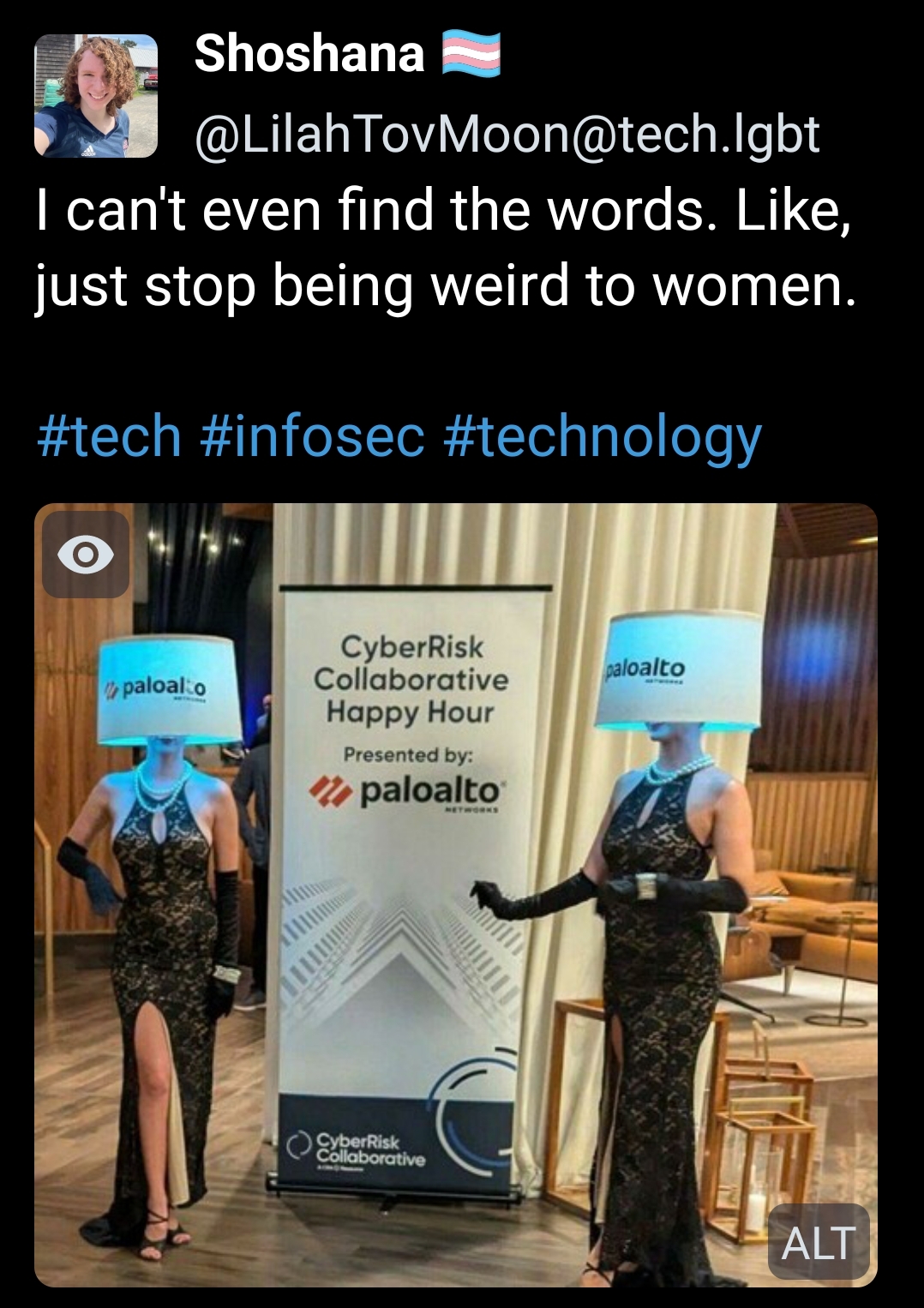this post was submitted on 15 Aug 2024
386 points (92.3% liked)
People Twitter
6785 readers
970 users here now
People tweeting stuff. We allow tweets from anyone.
RULES:
- Mark NSFW content.
- No doxxing people.
- Must be a pic of the tweet or similar. No direct links to the tweet.
- No bullying or international politcs
- Be excellent to each other.
- Provide an archived link to the tweet (or similar) being shown if it's a major figure or a politician.
founded 2 years ago
MODERATORS
you are viewing a single comment's thread
view the rest of the comments
view the rest of the comments

Not the person that asked the question, but I am someone who asks those types of questions:
They asked if you would feel the same if the only thing that was different was it being a man in a suit instead of a woman in a cocktail dress. They're trying to understand where exactly your objection lies - and you did answer, at the end, which is useful. It seems like your objection to this display is in fact in presenting people as objects; not just because it's women, not because of their clothing, not because of where it is or who's doing the hiring. Is that right?
But the question was not a strawman, ~~or insincere; it was a valid comparison question which appears to be from someone looking for an answer. I think you read aggression into it that was not there~~. Edit: Okay, I understand why you'd take that impression on the re-read and I can't say for sure it wasn't insincere, I'm just giving the benefit of the doubt. They need to work on their communication skills, but that's hardly uncommon, and it doesn't make the question a strawman.
Another question then, and this one is also sincere: there are plenty of art installations that present people as objects in some way. Is that fine in your book? If so, is this objectionable because it's advertising? I would think you're fine with it in art of i had to guess, but I've been surprised before!
It was definitely a loaded or insincere question. The use of "you would" instead of "would you" suggests that the person who is asking this question has already made up their mind about OP's opinion. And no, I don't think that was a typo, a Freudian slip maybe, but not a typo.
Re-reading the post, I absolutely agree that it was phrased badly and unfairly ascribed a view to @Dentzy they hadn't espoused, but I still don't think it was fair to characterise it as a strawman. As to malice, I find Hanlon's Razor to hold more true than Occam's, and I prefer to give the benefit of the doubt wherever reasonable if I'm up to it.
Personally, I find @Dentzy's opinion that it wouldn't be okay in any scenario (meaning with any combination of people) a little odd. The specific problems for women in tech make this carry connotations that wouldn't be there if it were adult men under the lampshades for example. But, I can understand and generally agree with the idea that "presenting people as objects is not okay", even if I would put an asterisk on it because I think there's artistic value in that presentation in some situations (for example, as an illustration of the way that rich people or corporations view the majority of us).
A strawman argument is still a strawman even if there was no malicious intent and it was made through ignorance of making a proper argument.
The phrasing isn't just poor, though, it has a connotation/implication that can only be learned through social context. There's absolutely aggressive intention with the phrasing. At the very least a "gotcha" attempt. Maybe they were raised in that environment and thus are uneducated and generally antagonistic, but then Hanlon's Razor would extend to any acts of hate.
I always like to ask "are you being judgemental or curious?" (Thanks, Ted Lasso)
It's not a strawman argument, though. The question does not follow the pattern:
Now I will quote the post to show that it does not follow the pattern:
There's no statement that the argument being made is that "it would be fine if the actors were male instead of female". The poster is asking a question, to paraphrase: "is this what you're saying?". This is a common way to phrase this question (even if it is not a good way to phrase it) when asking it honestly, so it would be unfair to assume the worst interpretation.